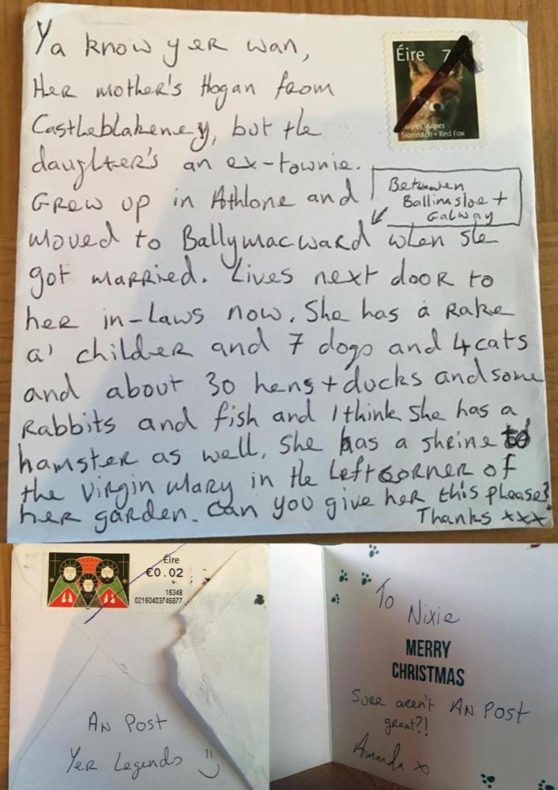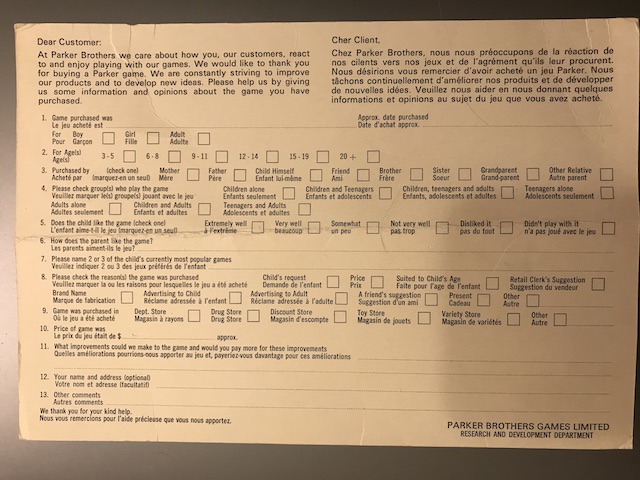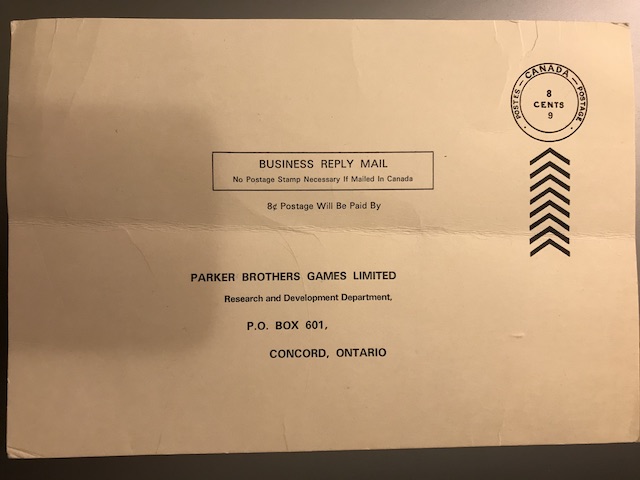I’ve always been fascinated by tales of postal heroism. Not the manufactured goodwill of a reply program for letters to Santa Claus, but the everyday challenge of figuring out what a sender intended and getting the letter into the right hands. It’s become a bit of a sport for snail-mail loving citizens, and the postal workers have stepped up to the plate.
Like the Irish postman who in 2015 managed to deliver his charge to “Your man Henderson, that boy with the glasses who is doing the PhD up there in Queen’s Belfast.” Or this one, which could be mistaken for a postcard, but is really a descriptive address. I like to think the fact the recipient had a hamster was the detail that solved the case.

Others are just a vague map with a dot on it and something like “Henry”.
I like these stories because of the creativity on one side of the transaction and the ingenuity on the other—things our culture forgets that public servants possess. Things they often don’t have the opportunity and leeway to exercise in a bureaucracy. But also because it brings them closer to the ‘wild type’ of the postman, the messenger who has pledged their troth to deliver some monarch or chieftain’s dispatch, word for word, having memorized it on pain of a horrible death. And who will probably suffer that horrible death on the other side when the missive itself is unwelcome.
It brings them closer to Hermes/Mercury and the ancient honor of providing communication to unseen parties even before the written word existed, and which will exist long after emails are an archeological curiosity. So you can imagine my delight when I opened a rather ancient cardboard box that held Masterpiece, an art auction-themed boardgame that is a cross between poker and monopoly. In addition to the cards that value your Pissarro and de Goya (all the way from “FORGERY” to the highest imaginable price, “$1,000,000”), and the vivid character sketches of your art-critic avatar (“no dossier prior to World War II available”, “spinster librarian from Central City”), I found that Parker Brothers Games had provided a customer feedback form.

The card is addressed to their Research and Development Department in Concord, Ontario. They want to know what improvements I would make to the game (let’s start with the word ‘spinster’ and have a think about that Nazi) and whether I would pay more for those improvements. They want to know what other games the child likes to play and whether we bought it at her request. They thank me for my kind help.
But the part that really intrigued me was the postage. “BUSINESS REPLY MAIL. No Postage Stamp Necessary If Mailed in Canada. 8¢ postage will be paid by Parker Brothers”. I am indeed in Canada, but the postage rate for a postcard currently stands at 92¢. A postcard cost eight cents in the years between 1971 and 1974. If I mail this off, will they honour it?

Part of me wonders about the 8 cents of postage that “will be paid”, suggesting a concessions system. Would Parker Brothers receive an 8 cent bill, or some sort of back-dated invoice with late fees that make up the difference? Or was it the Post Office themselves that made the commitment that no customer postage was necessary?
I am about to find out whether Canada Post still allows its rank and file some discretion, and whether they are happy enough at work to exercise it. Will post the results in the comments section below.
As an avid note writer this warms my heart and stationery. Thinking of opening a Masterpiece game is delightful. We played the game with our daughters in the ‘70s. For the record, I have had only three items lost in the mail over many decades is deliveries. I’m going to leave my mail carrier another note telling him he is my personal Mercury.